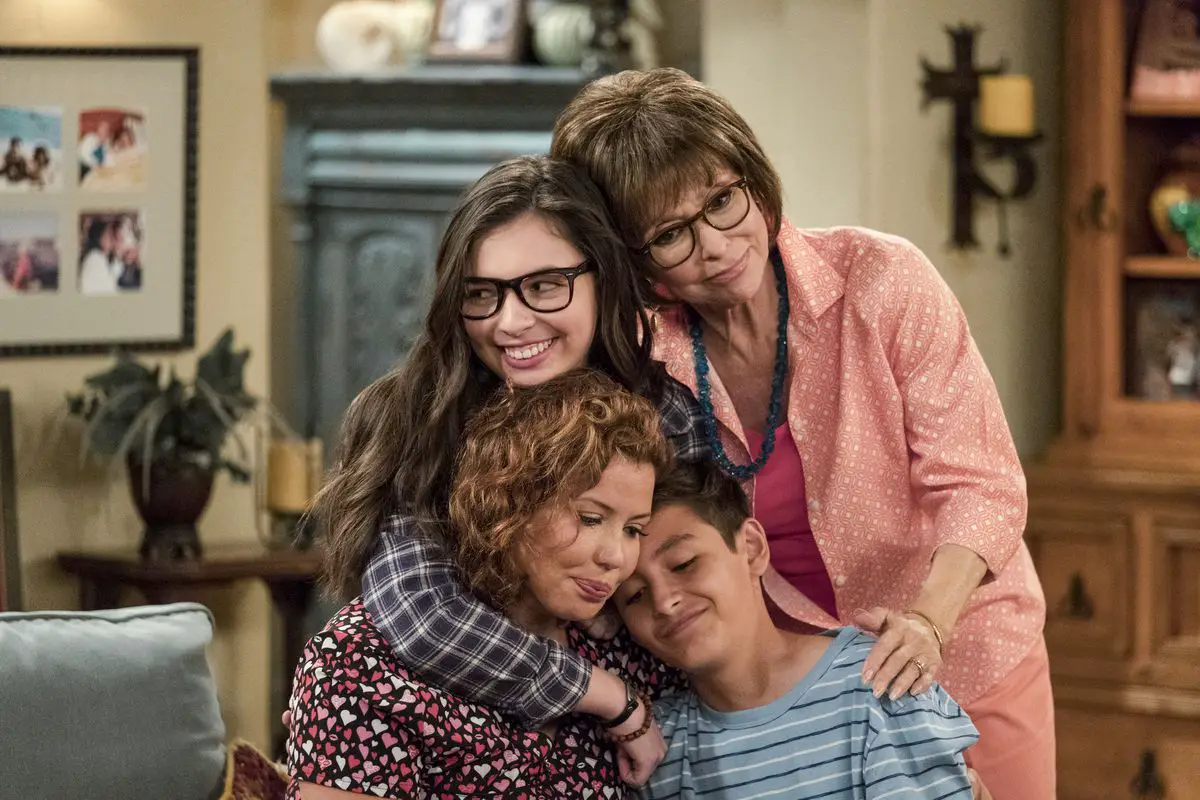“One Day At a Time” is a sitcom comedy drama show on Netflix that portrays the lives of three generations of a Cuban-American family in Los Angeles, Calif.: Penelope Alvarez, a nurse and a veteran, her mother, Lydia, and Penelope’s two children, Elena and Alex.
There is also Schneider, the buildings land lord and friend of the family, and Dr. Berkowitz, Penelope’s boss. Season one premiered Jan. 2017 and season two was released this January.
This show addresses a variety of topics, such as racism, mental illness and LGBT experiences that are more than relevant today, making it one of the best-valued shows on Netflix.
LGBT Experiences
Most of the conversation about gay issues surrounds Elena, the teenage daughter of the family. Halfway through season one, she came out as a lesbian, but the show didn’t just gloss over the struggles of her coming out and rush its viewers to a happy ending.
It delineated how difficult it was for her to come out, especially her fear of rejection from her traditional grandmother. Elena is accepted as who she is by everyone in her family except for her father, who saw her gayness through the lens of the stereotypical machismo Latino culture.
The problems with Elena’s father and Penelope’s ex-husband, Victor, didn’t end there as he choose not to come to Elena’s Quinceañera (a traditional Latino celebration of a girls 15th birthday) because of her expression of sexuality.
The family conflicts that result from someone of the LGBTQ coming out are not new, but media representation of those who do not conform to the binary system and their struggles is crucial, especially in a time where only 4.8 percent of characters on broadcast primetime programming were identified as LGBTQ and the rate for lesbian representation has dropped from 22 percent to 20 percent. A teenage Latina lesbian is what television really needs right now.
The events of the first season continue in the second with Elena and her father still not speaking to each other, a certain reality for many gay people. Alex meets with his dad in secret to defend his sister and tries to convince his dad to meet with his sister and patch things up after almost a year of no communication.
In an emotional and moving scene, Elena confronts her father, claiming that his rejection taught her to be strong and that she’s “moving on” with her life, knowing she is “pretty great” the way she is.
Again, Elena provides an amazing and positive role model for teenagers with all of her courage and confidence with her own sexuality and identity, which sends all the right messages to those sharing the same struggles.
In addition to the coming-out and acceptance facet, there was Elena’s experience with finding a girlfriend in this season.
Elena starts having a crush on a girl and has to figure out if she’s gay or not, which only ends up with Elena dating a different girl named Syd, but the whole awkward effort to find out if your crush is gay speaks to a lot of young gay people who are trying to find a romantic partner.
There is always that character in any movie that maintains an open perspective and accepts anything without further questioning, but rarely do viewers get to see the inner workings of such characters. “One Day At a Time” does not shy away from such things.
Season 2 of the show follows through with its philosophy of “not everything is happy-go-lucky,” starting with Penelope’s discomfort with Elena being gay.
Of course, she doesn’t do what Victor does, but instead tells her daughter that she accepts her as who she is, but the show does not stop there. It goes on to explore Penelope’s process of coming terms with Elena’s announcement, which is not entirely an easy one.

Penelope is in a situation that many parents can relate to, in which she wants to be supportive of her daughter and her sexuality but doesn’t feel completely fine about it.
The character of Penelope is a nod to those parents who are still adjusting to the new identity of their children, practically saying it’s okay to feel weird about your children’s coming out at first, but no one is perfect.
It is just as what a patron tells Penelope when she goes to a gay bar to try and overcome her feelings about Elena’s coming-out, “She’s been thinking about this for months or years. You just found out. Your heart is okay. You just need some time for your head to catch up.”
Mental Illness
When it comes to mental illness, “One Day At a Time” presents it in a way that is understandable to mainstream audiences, who may not have experience with it. Penelope is a former army nurse with PTSD. Season one deals with her PTSD and season 2 has a whole episode discussing her depression.
Yet her mother Lydia, for the most part of the show, doesn’t believe that mental illnesses are real or that people need medication or therapy. Lydia’s perception of mental health touches on the stigma of mental illness that currently exists in Latino culture.
In one episode, Penelope feels that everything in her life is going great and decides to stop going to therapy and taking her anti-depression medication. This results in her developing anxiety, not getting out of bed, sleeping for days and eventually engaging in some suicidal thoughts.
“One Day At a Time” makes the point that mental illness is just like any other sickness that needs proper medical care and treatment. Unlike other shows, it doesn’t portray Penelope as if she’s crazy, and neither does it focus on any specific traumatic event that caused her PTSD and depression.
She is just a normal person trying to live her life and do the best she can, just like thousands of others with mental health issues. Penelope is the accurate representation of those fighting against mental illness in their everyday life.
Racism and Colorism
The first episode of season 2 explores the topic of racism. It mostly revolves around Alex’s revelation that he has been getting racial slurs thrown at him for years and ended up punching a boy for calling him a “beaner.” Lydia also talks about the slurs shouted at her when she arrived in the U.S., especially those calling her a spic.
This episode tackles the racism of America and the realities of living in “Trump’s America.” The most interesting part though is the brief examination of colorism.
When Elena asks why she’s never experienced racism and prejudice for being Latina the way Alex has, her mother and grandmother tell her it’s because she is much paler than her caramel skinned brother, which earns her the nickname “blanquita” (meaning white girl).
I almost jumped at the reference of white passing, which is when a person of color is pale enough to look like a white person and subsequently benefit from white privilege. The paler Latinos are not always seen as Latino, mostly due to the perception that all Latinos have tan skin, dark hair and dark eyes, which is far from true.
Latino is an ethnicity, not a race, so Latino people can be of any color of the spectrum. While the country’s idea of race is complicated enough, the perception of race among Latinos has suffered from centuries of prejudice.
Despite the fact that most Hispanics/Latinos have European, African and Native American ancestry, the society sees white as superior and it is not uncommon for people to completely deny their African or Native ancestry, just like how Lydia, a Cuban, identifies as white and says that all Cuban’s are white, even though her daughter definitely couldn’t pass for white.
Of course, they are not biologically related in real life, but just a few lines of dialogue can actually be an insight into a larger issue in the Latino community.

















